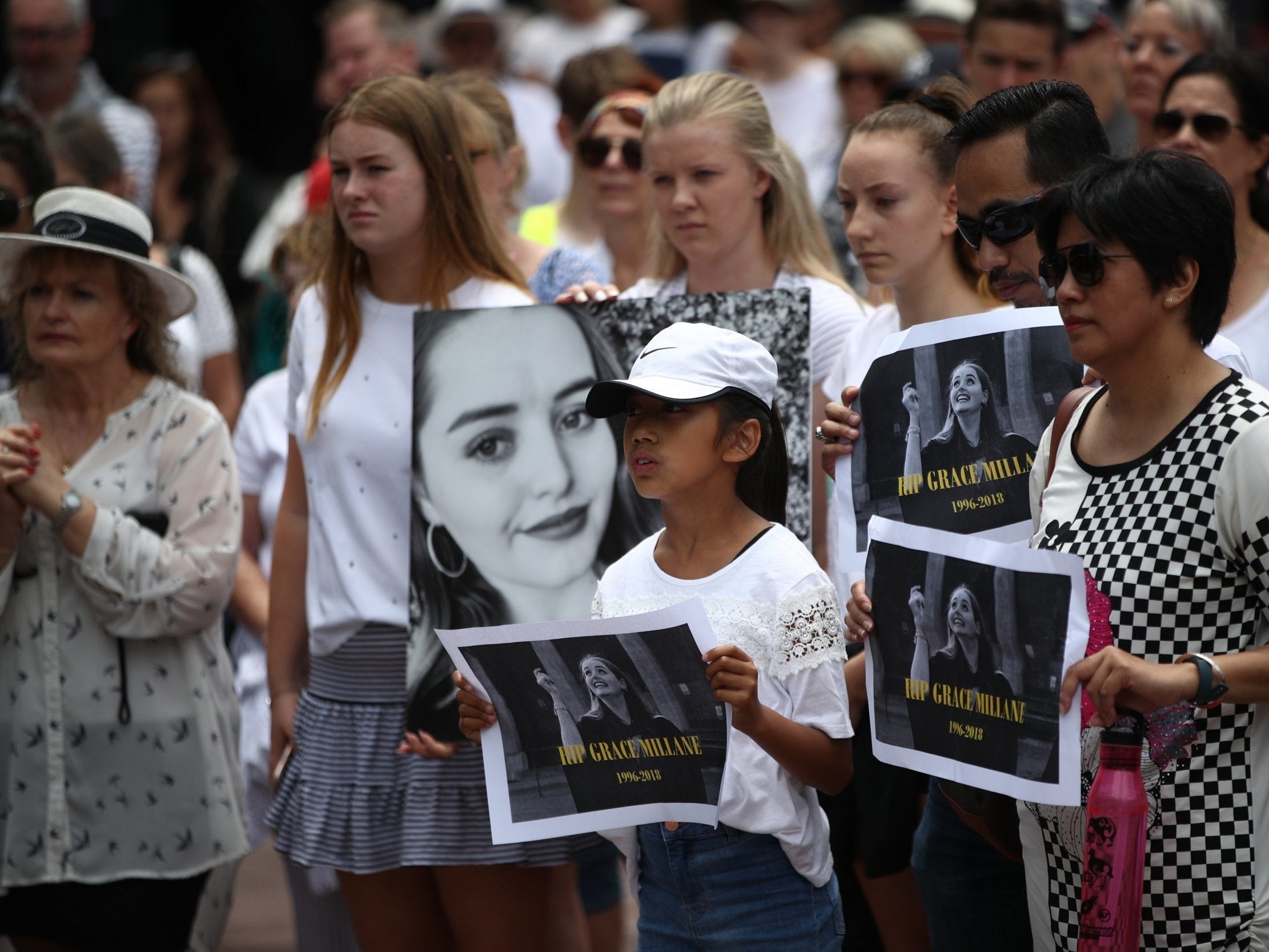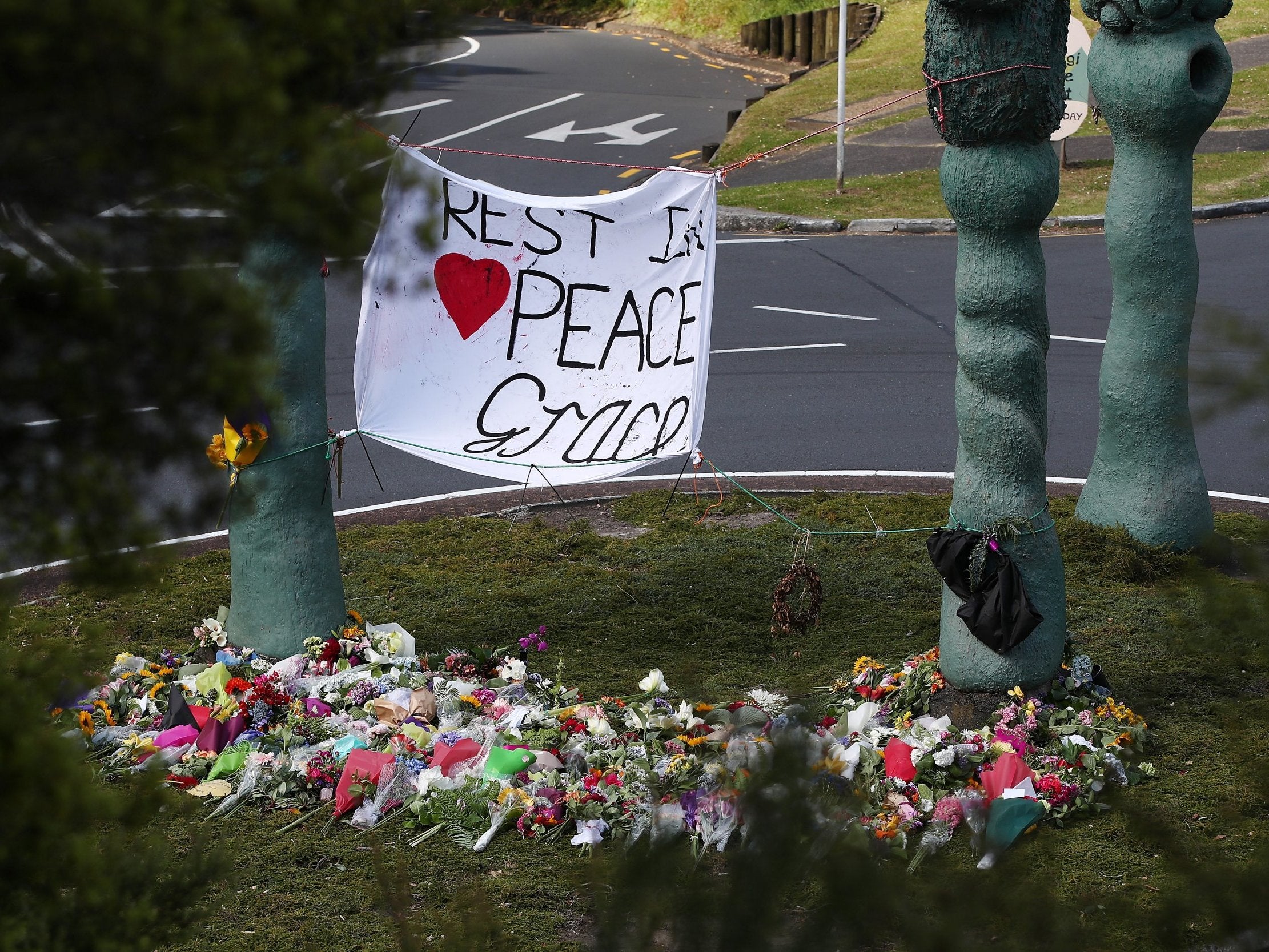Grace Millane is not alone – one in three women in New Zealand face violence from a partner
It’s seen as a safe and progressive country, but New Zealand has some of worst statistics for violence against women in the developed world

Your support helps us to tell the story
This election is still a dead heat, according to most polls. In a fight with such wafer-thin margins, we need reporters on the ground talking to the people Trump and Harris are courting. Your support allows us to keep sending journalists to the story.
The Independent is trusted by 27 million Americans from across the entire political spectrum every month. Unlike many other quality news outlets, we choose not to lock you out of our reporting and analysis with paywalls. But quality journalism must still be paid for.
Help us keep bring these critical stories to light. Your support makes all the difference.
Since the body of missing British backpacker Grace Millane was found on 9 December, there has been an outpouring of grief in New Zealand.
Last week, thousands attended vigils in cities around the country. For those in rural areas, street corners were filled with flowers and hand-written cards.
But the sadness has soon given way to anger. As Grace’s body was flown back to the UK, marches for women affected by violence were held in both Auckland and Christchurch.
New Zealand’s equal employment opportunities commissioner, Dr Saunoamaali’i Karanina Sumeo, says the 22-year-old’s murder has sparked a national conversation about the country’s sobering statistics for male-on-female crime.
“In New Zealand, we’ve just celebrated 125 years since women got the vote. We are marketed as a beautiful country. Not only beautiful physically, but also that we are friendly people and we are inclusive,” says Dr Karanina Sumeo, speaking to The Independent.
“So the death of a Grace is a shock to the image of New Zealand. And it has brought to the fore emotions of anger, shame, regret and determination in New Zealanders to do more to end violence against women. But this isn’t a new problem.”
New Zealand is largely seen as a safe, progressive and liberal country, a place where women were given the first vote in the world. There have been three female prime ministers and women lead half of public sector agencies.
But the country has some of the worst statistics for sexual violence and violence against women in the Organisation for Economic Co-operation and Development. The latest figures show that family-related violence in New Zealand is the highest in the developed world, with one in three women facing violence from a partner.
There is one domestic violence call-out to police every five minutes, according to the latest police figures, published in May. But it is believed that only 20 per cent of victims of violence, and only 9 per cent of victims of sexual crime, are asking for help – so those figures are just the tip of the iceberg.
For a long time, violence against women here has been compartmentalised as an issue that is for women of colour and then, when it happens to a white woman, it is shocking
In the same week that Grace’s body was found, another woman lost her life 30 miles away in Flat Bush, a suburb in southeast Auckland. On 11 December, police arrived at her home after neighbours could hear a child screaming.
A five-year-old had witnessed the alleged murder of his 34-year-old mum, according to witnesses who comforted him at the scene. She was found unconscious with a number of serious wounds and died in nearby Middlemore Hospital from her injuries soon after.
A man was charged with murder and will appear in court in early 2019. The incident made just four headlines in the national media.
Dr Karanina Sumeo says the silence speaks volumes about the whitewashing approach whereby Maori and Pasifika women, those disproportionately represented in family violence statistics, just don’t get the same attention.
However, it is unclear if the victim was Maori as no details have been released.
But an independent inquiry in 2014 found that family violence was most prevalent among Maori, despite the ethnic group only making up 15 per cent of the population. The Glenn Inquiry found that 50 per cent of those in women’s refuge services around the country were Maori.
“For a long time, violence against women here has been compartmentalised as an issue that is for women of colour and then, when it happens to a white woman, it is shocking because those stereotypes are shot out,” says Dr Karanina Sumeo.

“But that woman in Flat Bush, she is someone’s daughter, someone’s mum. Whatever her background is, she is loved.”
Violence against women doesn’t happen in a vacuum, warns Dr Karanina Sumeo. In New Zealand, there’s an ingrained culture that promotes a toughness in men and the violent treatment of women often seems to follow.
“But there’s something we can do about it right now and it doesn’t take much money, it’s about how we raise our boys in the home," she says. She adds that New Zealand society needs to make its boys more resilient, so they can learn to deal with rejection without getting angry.
There’s been a collective understanding that New Zealand’s problem with male-on-female crime – something usually found in the home – has now, with Ms Millane’s murder, taken a visitor as a victim.
From Wickford, England, she went missing on 1 December, the day before her 22nd birthday. She had been in New Zealand since late November after arriving from Peru as part of a round-the-world trip.
Her body was found in a forested area in the western outskirts of Auckland a week later. A 26-year-old man was charged with her murder and is on remand, to appear in court in late January.
But it’s a horror tale that is not uncommon in New Zealand. In 2012, Czech hitchhiker Dagmar Pytlickova was raped and murdered. In 2008, Scottish woman Karen Aim was beaten to death. In 2005, German visitor Birgit Brauer’s body was dumped in a gully. In 1992, English tourist Margery Hopegood was stabbed to death in toilet block.
At a press conference, choked-up on emotion, the prime minister, Jacinda Ardern, said: “So on behalf of New Zealand, I want to apologise to Grace’s family. Your daughter should have been safe here, and she wasn’t, and I’m sorry for that.”
Ms Ardern is no stranger to the ingrained culture of violence against women in New Zealand. Her government recently announced a 30 per cent increase in spending to address family violence and will invest $76 million over four years for frontline social services.
MP Jan Logie has been newly appointed as the parliamentary under-secretary on domestic and sexual violence. But Ms Logie admits that attitudes can’t be changed overnight.
“This change can never be quick enough, especially for women and children who are stuck at the moment and not getting the help they need. It’s changing a culture that is ingrained, around our social norms and our attitudes that enable people to hurt those they supposedly love,” she tells The Independent.
“One of my key goals is to reclaim the sense that this is a problem we can fix. But the flip-side is that if we don’t fix this, we are going to continue to have these terrible rates of violence against women because these things don’t fix themselves.”
Subscribe to Independent Premium to bookmark this article
Want to bookmark your favourite articles and stories to read or reference later? Start your Independent Premium subscription today.
Join our commenting forum
Join thought-provoking conversations, follow other Independent readers and see their replies
Comments